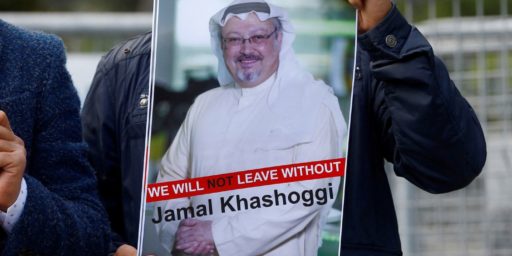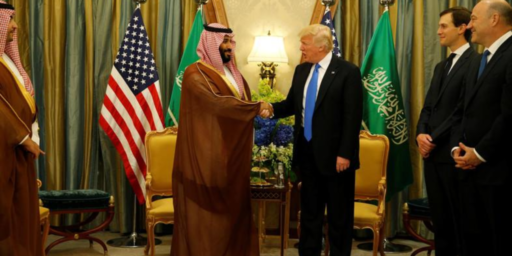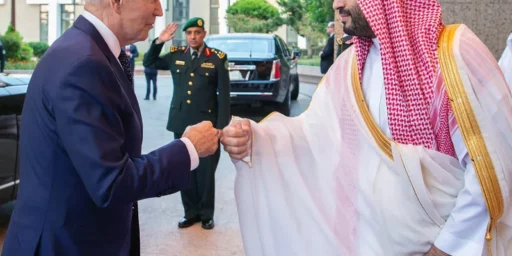Saudi Reforms, Five Years After
Over at Crossroads Arabia, I’ve posted a lengthy and detailed entry about the reforms that have happened in Saudi Arabia since 9/11. Some of the post concerns things that happened while I was assigned there as Counselor for Public Affairs at the US Embassy in Riyadh. The rest is culled my my blog on US-Saudi relations, starting in the summer of 2004.
Some of the reforms look paltry from a Western perspective. But many of them are very, very big from a Saudi perspective. Considering the starting point, I think there’s real progress in reforming both Saudi civil society and government in favorable directions. New or enlarged freedoms range from the opening of new job categories to women; empowering them to get their own ID cards without male permission/supervision; a more free press; the opening of human rights bodies; the first nation-wide elections of any kind; more attention being paid to child and spousal abuse, as well as abuse of third world workers; moves toward greater transparency in government and the judicial system; reforming textbooks and school curricula; public condemnation of extremism and religious intolerance; and its own war against Islamic terrorism.
There is still a lot to be done. The progress made isn’t guaranteed to stick. But I think it important to realize that change toward moderation is, in fact, happening, and to acknowledge it. We want to see evidence that reform is possible. Here’s some.




